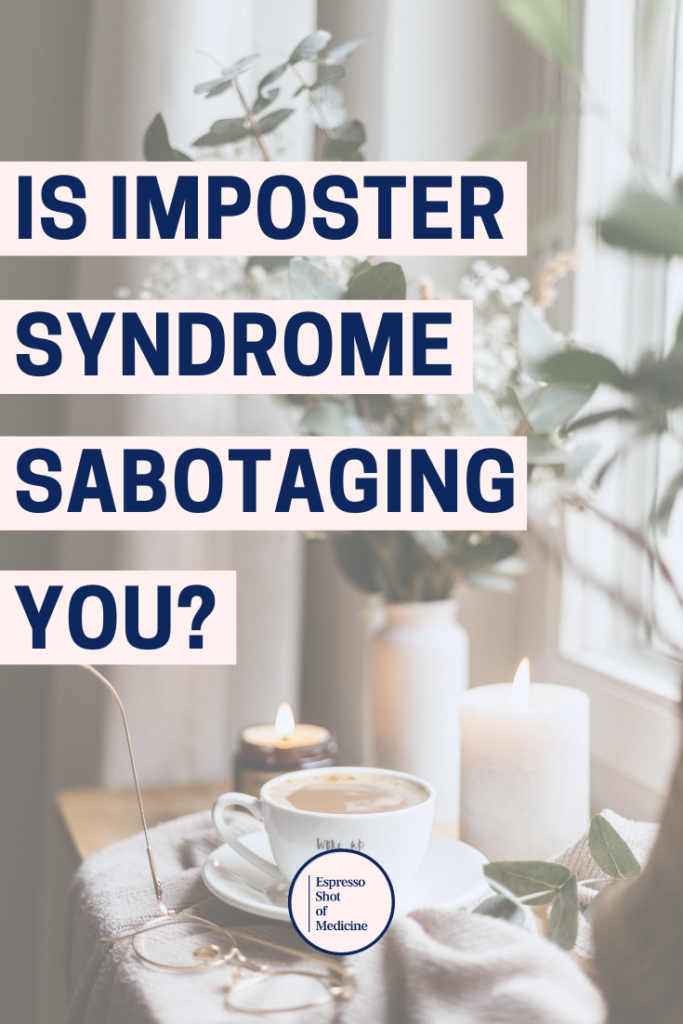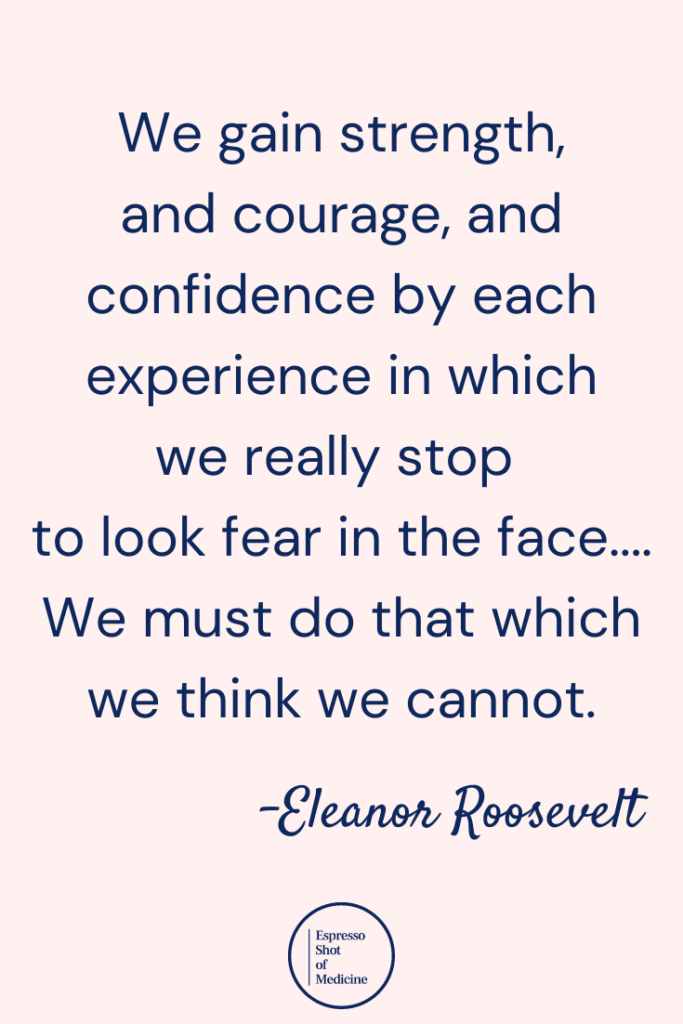Did you know that after her Academy Award nominations for Titanic and Sense and Sensibility, the amazing Kate Winslet said, “Sometimes I wake up in the morning before going off to a shoot, and I think, I can’t do this; I’m a fraud. They’re going to fire me – all these things. I’m fat; I’m ugly…”?
Maya Angelou, after writing 11 books and winning many prestigious awards, still had nagging doubts that she hadn’t earned her accomplishments.
And they’re not the only ones. Many celebrities have admitted to feeling like frauds even after big successes.

Table of Contents
What about you?
Do you ever tell yourself:
I don’t belong here.
I don’t deserve my accomplishments.
People will discover I’m really a fraud.
I just got lucky.
What gives me the right to do this?
I must not fail.
You’re not alone
When I started to pursue my dream of having a coaching business, some of the thoughts that were running through my head were:
I don’t belong here.
People will think I’m a fraud.
I can’t fail or people will find out I don’t have a right to be here.
I feel so silly doing this – who am I to be doing this?
It didn’t matter that I was putting in a huge amount of hours learning everything I could about blogging and coaching, that I was working my butt off, that I was pursuing my dream and it made me incredibly happy. I still felt like a complete and utter fraud who would be found out any day, and a big letter would arrive in the mail telling me to wrap it all up because I had no right to be there.
Related posts:
- The 2 Traits Causing Your Self-Doubt – and the 3 Ultimate Practices to Overcome It
- Why Perfectionism Makes Us Procrastinate
- The Eye-Opening Reason Straight A-Students Don’t Pursue Their Ultimate Dream
So, what is it that causes so many of us to feel like this and to doubt ourselves in this way?
It’s imposter syndrome.
Imposter syndrome is a term coined by Pauline Clance and Suzanne Imes in 1978. It refers to the belief that we’re an inadequate and incompetent failure despite evidence that indicates that we’re quite skilled and successful. With imposter syndrome also comes the idea that we’ve succeeded because of luck and not our talents or qualifications.
Well that sounds depressing. It does, doesn’t it.
Who experiences imposter syndrome?
So many of us experience imposter syndrome. In fact, a study found that 70% of people will experience imposter syndrome at some point in their lives. That’s a lot of people!
High achievers especially experience intellectual self-doubt; we think our achievements have more to do with luck than ability. Another group of people that experience imposter syndrome are minorities in a particular environment. Whether it’s women in business or STEM, ethnic minorities in any area, or international students while abroad, we worry and fear that people will “find us out” and unmask us as the frauds we really are.
We think, “Everyone things I have it all figured out, that I know what I’m doing, that I’m successful because of my ability and skill. But really I have no idea what I’m doing. I was kind of just lucky.
So even if we have an outward appearance of success, we have trouble believing that we’re worthy because we think our success is because of luck.
Why does this matter?
Imes says, “[imposter syndrome is] more common in people embarking on a new endeavour.” And that’s why it matters.
Maybe you’ve been thinking about branching off from your current career path and following your dream. Maybe you’ve even dipped your feet in and started to look towards creating your dream.
You’ve read some articles, checked out a few books, maybe even attended a webinar or two about your dream.
And even though you’re excited about the idea of leaving your job and doing what you love, imposter syndrome pokes its head in and acts like a braking system.
When we start toying with the idea of following our dream, imposter syndrome acts to hit the breaks. All of the sudden, we start thinking, “What am I doing? This is so outside of what I do now. I don’t belong here. All the people here are more creative/interesting/smart/successful than I am. What could I even offer. More likely I’ll just fall straight on my face and embarrass myself. And people will know I shouldn’t have been there in the first place. I should just stay in my lane.”
Imposter syndrome is sabotaging our dream and so we stop working on our dream, before it even begins.
And that’s so disappointed and really unfortunate.

If I have let imposter syndrome keep sabotaging my dream
When I think back to when I was starting my coaching business, I remember all the times I felt all of these things, when I told myself, “What makes you think you can do this Sonja?” I remember the real fear and panic I felt thinking of leaving medicine and my corporate career and following my dream.
And it was terrifying. Even when I started the coaching business, I always felt like I was a fraud. That I didn’t know what I was talking about. Even though I was doing way too much research, listening to every blogging podcast there is, reading every self-help book I could find, listening to other coaching, joining coaching groups, I always thought, “Yeah it makes sense for all these other women to be here, but I don’t really know what I’m doing. I don’t belong here and soon all these women are going to find out and kick me out of the groups and make me return all my books.
And then I think about where I would be if I hadn’t kept going, if I had given to the fear of being found out or embarrassed.
I would still be doing a job that I really didn’t like. That really gave me anxiety and night sweats. That I was good at, but dreaded going to. A job that has prestige, but made me count the minutes until I could go home, and the days until the weekend came.
And I’m so thankful that I took the time and found the courage and help I needed to push through imposter syndrome.
Your turn to prevent imposter syndrome from sabotaging your dream
And I think all of us have it within ourselves to find a way to work through imposter syndrome so that it stops sabotaging our dream, so that it doesn’t hold us back from pursuing a dream that would make us happy.
This is something I talk about in my coaching program. So many women experience imposter syndrome, especially when they are doing something different to what they are used to or something that is outside of typical societal view of a women’s role (yes unfortunately this is still a think even in 2020). And that’s okay! It is not your fault!
Working through imposter syndrome is so important so that I doesn’t hold you back any longer.
So do whatever it is you have to do to work through it, whether that is reading books, going to a webinar, or checking out my coaching program. Because you deserve to live the life you want, not the life you settle for.
Do you think you’re experiencing imposter syndrome? If yes, do you think it is holding you back from pursuing your dream?
Share in the comments below!






As soon as I discovered this website I went on reddit to share some of the love with them. Daryl Aguste Arline
Thanks Daryl!